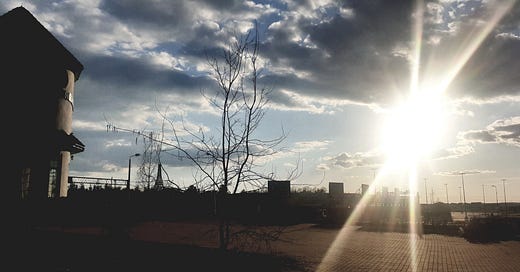"She Asked Me If I Know Them Yutes Round There Of Course They Ain't Got No 'Stacks" Edition
Hello,
Happy Easter!
Obligatory shilling. I wrote for the Spectator World about the strange YouTube career of the black separatist NYC shooter.
For The Critic I reviewed an interesting book on the Swedish education system and “post-truth” schooling.
On Substack I riffed on identity and meaning and wrote in praise of Radiohead’s OK Computer.
Progressivism, Inc. Over at Compact, Geoff Shullenberger addresses the possibility of Elon Musk buying Twitter:
Those fretting about the world’s wealthiest man gaining control over their favorite site have scarcely objected to the fact that the media outlets, think tanks, NGOs, and universities they work for comprise a patronage network bankrolled by a handful of other billionaires like eBay founder Pierre Omidyar and Amazon’s Jeff Bezos.
Of course, one could just as easily mock people who think Bill Gates is using 5G to give us all man boobs yet celebrate the founder of Neuralink. Still, it is hard not to be entertained as he shakes up the smug world of techno-managerialism.
The elephant and the wind. Sam Ashworth-Hayes comments on how the murder of David Amess MP, the perpetrator of which has commented openly and explicitly about how he is a jihadist who killed Mr Amess to avenge other jihadists, is still being spun as symptomatic of generalised incivility.
Globalisation and its mécontentements. Krzysztof Tyszka-Drozdowski addresses the transformation of French culture:
In the run-off, for the second time in a row, we will witness a showdown between the candidate of France for whom the future and globalisation mean the same thing and the candidate of France for whom globalisation means decline. French politics has finally come to represent the society described by Fourquet.
Meaningful meaninglessness. Speaking of France, Dalrymple on Houellebecq is self-recommending:
As Chekhov conveyed boredom without being boring, so Michel Houellebecq conveys meaninglessness without being meaningless. Indeed, his particular subject is the spiritual, intellectual, and political vacuity of life in a modern consumer society—France in this case, but it could be any Western country.
It could - though Houellebecq could only be French.
Barbs and hatchets. Rosemary Jenkinson asks what happened to the literary feud:
Naturally, no one wants to see hatchet jobs on writers, but one can’t help wondering where the entertainment is in a bland anodyne literary world. Many writers don’t have the robust constitution to engage in the art of the literary skirmish, but the difficulty for the few who do is that those they write about are likely to claim victim status.
There is something faintly ridiculous about the idea of a literary feud. If you really hate someone you should ignore them or punch them on the nose rather than exchange bon mots. Still, the literary world is too polite in critical terms - presumably because it is so small and no one wants to ruin a potential working relationship.
Yet perhaps the sensational nature of a feud might be good for business? Any professional wrestling fan has heard the phrase “controversy creates cash”. Thus, I am accepting applications for the position of “hated adversary”. I’ll trash your book, you’ll trash mine and then I will attack you in a fashionable restaurant.
Have a lovely week,
Ben






